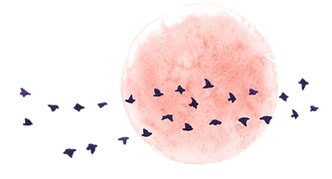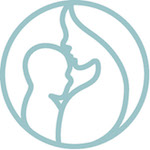Availability of truly Alternative Medicine
The fact is, however, that mainstream (allopathic) medicine is here to stay. Unless you are a millionaire and can afford to go to one of the few truly alternative private medical hospitals around the world, most healthcare is provided under an allopathic (rather than a vitalist) model. The fact is that - if you need any kind of surgery or have a life-threatening condition, all of these are provided for under mainstream medicine. It is not that alternatives do not exist - but rather, it is difficult both financially and legally to provide them here in the UK. So, although I personally suspect that CAM would be very helpful for (e.g.) epilepsy or heart conditions or other severe situations, I certainly could not provide a replacement for mainstream medical care. "Alternative" means that there is some degree of replacement, and the fact is that I don't run a hospital.

Instead, the service I and most other "Alternative"/CAM healthcare practitioners provide is literally "Complementary" to mainstream medicine. i.e. we refer back to the mainstream medical system whenever necessary, and we only treat people who for some reason or other are looking outside that mainstream medical system for help. So, we tend to not see many cases where standard medication can control the condition, and we tend not to see any cases where there is an immediate threat to life. Neither do most of us see people who are hospitalised or otherwise bed-ridden or under nursing care. Instead, we mainly see "low level" but still moderately incapacitating health problems - such as pain or reduced mobility. That is not because there is a lack of potential to treat more serious cases (see History of CST), but - certainly in the UK - there are so far very few opportunities to work directly with (or within) mainstream medicine. Those limitations also limit the type of clinical experience and skills CAM therapists can acquire during our practice. However, we do mainly see people who have not been helped by years of mainstream medical treatment - and they often report a substantial degree of help from CST. We also treat conditions that are not well catered for by mainstream medicine - e.g. baby colic is not well understood medically.
In short, my CST practice is necessarily Complementary, and is not Alternative.
Probably a better term to use is "Holistic" ... One definition of a Holistic practice/practitioner is given by ANMA
Politics, Geography and History
As an aside, it must be noted that the politics of CAM evolved differently in each country. Originally, in the 19th century, there was far less general agreement as to what medicine is. Many doctors continuously experimented with new ways to help their patients. Most of of the complementary therapies we know today were adopted or even developed during this period, many by doctors. Surgery had only just been wrested from the barbers, and pharmaceuticals consisted mainly of herbal preparations with a history of use sometimes going back thousands of years. Aspirin - one of the first truly pharmaceutical (manufactured) medicines - was a chemical synthesis of the main active ingredient isolated from the herbal remedy white willow bark. When I was growing up in England in the 1960's there was still a local herbalist in my grandmother's village, who was the first point of call before people went to see their doctor. This is still more or less the case in some parts of Scotland today. There was also a tradition of local bonesetters - people who had learned manual skills to treat breaks and dislocations and this had been passed down in their family through generations - and my parents remembered that in the 1950's even the local doctor would send patients to this person - just as he would now refer to the specialists in the orthopaedic unit of the local hospital. As modern medicine came to be consolidated in the late 19th century, this was finally crystallised in the UK by the formation of the NHS in 1948, at which point only allopathic physicians and homeopathic physicians were recognised by the state as being "true" doctors.
For a while, the provision of universal free medical care in the UK caused a massive reduction in any types of medical approach that was not adopted by the NHS. Whilst our Common Law allows the practice of anything which is not specifically prohibited, most of the village herbalists and bonesetters disappeared over the next 25 years in the face of free hospital treatment. The subsequent steady rise of complementary therapies starting in the 1980's is a largely unconscious acknowledgement in our society that something is missing from mainstream healthcare. This "something" includes a viewpoint of wellbeing, a capacity to listen and provide a personal service, and an acknowledgement that we are more complex than landrovers, and the mind-body or mind-body-spirit wholeness is an important part of who we are. It's not that a mainstream doctor cannot do any or all of these things, but rather - most of them have been trained not to do so. The old style mythical Dr Findlay as a GP has somehow been lost, even if he never really existed outside TV, and exactly what has been lost - personal contact - is remarkably difficult to replace. Whereas mainstream medicine in the UK has more or less separated the person into functional systems that are catered for by experts (Urology, Gynaecology, Psychiatry, Orthopaedics, etc), CAM provides a format in which these can be stitched back together. And whereas medical training has steered towards pharmacy and high tech and tends to be institutionally secular; CAM is intrinsically person-centred, implicitly allows for a spiritual dimension to life, and incorporates a more Vitalist viewpoint.
In the USA this definition of "what is medicine" driven by legislation resulted in a slightly different arrangement, with Osteopaths being considered part of the mainstream medical profession. So to this day, American Osteopaths receive more or less the same training as GPs with a speciality of manual therapies and Naturopathy. Furthermore, the American Medical Association (AMA) continues to aggressively persecute through legal action anyone who is not a licenced physician who lays even the smallest claim to being able to treat any illness. So, for example, the only way that Eunice Ingham could teach Reflexology in the USA without being prosecuted and jailed was to write a book and then give public lectures about the book.
In Europe the situation was and is rather different. In Germany, Hitler brought in the Heilpractiker law to suppress ethnic folk medicines (and ethnic minority groups). As a result, German mainstream doctors started to practice or sponsor all kinds of therapies that are considered non-mainstream in the UK. So, herbalism, various forms of massage, homeopathy etc are all available in many German medical practices, as are acupuncture and therapies such as CST, under the overall supervision of a trained doctor. The movement and breath therapies ("Gymnastik") that were developed in Germany in the early 20th century were also largely suppressed by the Nazis (because they also promoted independence of thought), but they went on to be the basis for many modern branches of movement therapy and psychotherapy. In Russia, many approaches that we classify as CAM are considered to be mainstream, because physicians there practice a far more integrative, plural and holistic brand of medicine. There has also been substantial research by the Russian Academy of Sciences into the electronic aspects of body physiology - a subject that for some reason tends to attract derision in the west. And more or less the same month that the NHS decided to remove all herbal and homeopathic medicines from its funding list,
Switzerland decided to make them equivalent to (and officially part of) mainstream medicine. So the medical model that we are familiar with in the UK is not the only possible medical model. Perhaps the biggest mainstream paradigm difference that can be seen today is the way that medicine in China has integrated the best of traditional Chinese medicine (herbs, acupuncture, etc) with the best of western surgical and pharmaceutical medicine (and western anatomy and physiology). They are not so bothered about having a "scientific" approach by thinking that they need to understand how each technique works, but rather they just look at what is most effective and use that, regardless of where it comes from. This empirical approach to clinical effectiveness is shared by western complementary therapies, and is a valid and viable alternative to the measures and models used by western mainstream medicine.
Maybe attitudes have started to change - but up to now the progress has been frustratingly slow. A recent lottery-funded study has been published [1] into the effect of Spiritual Healing on outcomes for 200 NHS outpatients suffering from IBS and IBD. The results showed substantial medical help above any possible placebo effect with additional improvement in quality of life and potentially large cost savings. A 2008 pilot study [2] of the effect of integrating complementary therapies into a GP's practice in Belfast also showed similar promise. The project was just quietly abandoned once the funding period lapsed - but has survived as a private clinic outside of the NHS. Apart from the institutional and political inertia, there is a general level of cynicism about CAM approaches by a very vocal minority of doctors in the UK - which has made it very difficult for more open minded GPs to find ways to run the kind of integrated practice that can be found in countries such as Germany and Switzerland.
CAM and Science
Which brings us to the central issue in the debate between the words "Complementary" and "Alternative". Which is really a debate about the true nature of science. Since the successes of theoretical physics in the late 19th and early 20th century, a myth has been perpetuated that science "knows why things work". But the fact is that even these theories that have been hugely successful in developing technology are only models - and despite the extraordinary technical progress they have allowed, they are not the real thing - they are an approximation simple enough to be coded mathematically. When it comes to the technology necessary for a mobile phone, there is still an inherent simplicity that allows these models to be used. When it comes to living organisms, we are still many generations from being able to really understand what is happening - even in simple situations. As an example, it is only in 2012 that a whole new lymphatic system was discovered in the brain that implies a 5x increase in the turnover of cerebro-spinal fluid (compared to the previous knowledge in 2011). The same year saw the discovery of a magnetic sensor in the eye of birds that allows them to navigate by the earth's magnetic field. Working with quantum states, this sensor is held in a relatively small molecule, is billions of times smaller than the most sensitive similar human-made device, and is many times more sensitive. And it's possible that human eyes may also possess this feature.
It would be nice to understand "why" complementary therapies work, (and there are a continuous stream of attempts to do so) - but all we can say is "we do X and then we see Y happen". And although Jacques Benveniste was trashed by the editor of Science Journal after he showed that water has a memory - subsequent repeats of his experiments in other independent laboratories (including one by Nobel Prize recilient Luc Montagnier) have also demonstrated that water has a memory at ultradilutions. We still don't know why - but ultimately science is NOT about assuming knowledge first and then proving what it already knows. To quote one of the pioneers of Cranial Osteopathy, Rollin Becker - "Something Happened" (he just used to write "SH" in his client notes). This empirical approach is a traditional form of science, but is not seen as such by anyone who does not believe that anything can exist unless it fits their already-formed view of how the world works. The experience is that "interesting things" happen in the playground that connects consciousness/awareness and body tissue.
References
-
Sandy Edwards (2017) A pragmatic randomised controlled trial of healing therapy in a gastroenterology outpatient setting Published by the European Journal of Integrative Medicine; Volume 9, January 2017 http://www.sciencedirect.com/science/article/pii/S187638201630422X
-
Donal McDade(2008) Evaluation of a CAM Pilot Project in Northern Ireland. dropmenu1 of Health and Social Secutiry Evaluation Complementary And Alternative Medicines Pilot Project. Available online here and here
 Complementary & Alternative (or Holistic?)
Complementary & Alternative (or Holistic?)







